- Home
- D. H. Lawrence
Lady Chatterley's Lover Page 28
Lady Chatterley's Lover Read online
Page 28
“That one shouldn’t! One should never have them made!”
He broke the cardboard photograph and mount over his knee, and when it was small enough, put it on the fire.
“It’ll spoil the fire, though,” he said.
The glass and the backboards he carefully took upstairs.
The frame he knocked asunder with a few blows of the hammer, making the stucco fly. Then he took the pieces into the scullery.
“We’ll burn that tomorrow,” he said. “There’s too much plaster-molding on it.”
Having cleared away, he sat down.
“Did you love your wife?” she asked him.
“Love?” he said. “Did you love Sir Clifford?”
But she was not going to be put off.
“But you cared for her?” she insisted.
“Cared?” he grinned.
“Perhaps you care more for her now,” she said.
“Me!” His eyes widened. “Ah, no, I can’t think of her,” he said quietly.
“Why?”
But he shook his head.
“Then why don’t you get a divorce? She’ll come back to you one day,” said Connie.
He looked up at her sharply.
“She wouldn’t come within a mile of me. She hates me a lot worse than I hate her.”
“You’ll see, she’ll come back to you.”
“That she never shall. That’s done. It would make me sick to see her.”
“You will see her. And you’re not even legally separated, are you?”
“No.”
“Ah, well, then she’ll come back, and you’ll have to take her in.”
He gazed at Connie fixedly. Then he gave the queer toss of his head.
“You may be right. I was a fool ever to come back here. But I felt stranded and had to go somewhere. A man’s a poor bit of a wastrel, blown about. But you’re right. I’ll get a divorce and get clear. I hate those things like death, officials and courts and judges. But I’ve got to get through with it. I’ll get a divorce.”
And she saw his jaw set. Inwardly she exulted.
“I think I will have a cup of tea now,” she said.
He rose to make it. But his face was set.
As they sat at the table she asked him:
“Why did you marry her? She was commoner than yourself. Mrs. Bolton told me about her. She could never understand why you married her.”
He looked at her fixedly.
“I’ll tell you,” he said. “The first girl I had, I began with when I was sixteen. She was a school-master’s daughter over at Ollerton, pretty, beautiful really. I was supposed to be a clever sort of young fellow from Sheffield Grammar School, with a bit of French and German, very much up aloft. She was the romantic sort that hated commonness. She egged me on to poetry and reading: in a way, she made a man of me. I read and I thought like a house on fire, for her. And I was a clerk in Butterley Offices, a thin, white-faced fellow fuming with all the things I read. And about everything I talked to her: but everything. We talked ourselves into Perse-polis and Timbuctoo. We were the most literary-cultured couple in ten counties. I held forth with rapture to her, positively with rapture. I simply went up in smoke. And she adored me. The serpent in the grass was sex. She somehow didn’t have any; at least where it’s supposed to be. I got thinner and crazier. Then I said we’d got to be lovers. I talked her into it, as usual. So she let me. I was excited, and she never wanted it. She just didn’t want it. She adored me, she loved me to talk to her and kiss her: in that way she had a passion for me. But the other, she just didn’t want. And there are lots of women like her. And it was just the other that I did want. So there we split. I was cruel, and left her. Then I took on with another girl, a teacher, who had made a scandal by carrying on with a married man and driving him nearly out of his mind. She was a soft, white-skinned, soft sort of a woman, older than me, and played the fiddle. And she was a demon. She loved everything about love, except the sex. Clinging, caressing, creeping into you in every way: but if you forced her to sex itself, she just ground her teeth and sent out hate. I forced her to it, and she could simply numb me with hate because of it. So I was balked again. I loathed all that. I wanted a woman who wanted me, and wanted it.
“Then came Bertha Coutts. They’d lived next door to us when I was a little lad, so I knew ’em all right. And they were common. Well, Bertha went away to some place or other in Birmingham; she said, as a lady’s companion; everybody else said, as a waitress or something in an hotel. Anyhow, just when I was more than fed up with that other girl, when I was twenty-one, back comes Bertha, with airs and grace and smart clothes and a sort of bloom on her: a sort of sensual bloom that you’d see sometimes on a woman, or on a trolly. Well I was in a state of murder. I chucked up my job at Butterley because I thought I was a weed, clerking there: and I got on as overhead blacksmith at Tevershall: shoeing horses mostly. It had been my dad’s job, and I’d always been with him. It was a job I liked: handling horses: and it came natural to me. So I stopped talking ‘fine,’ as they call it, talking proper English, and went back to talking broad. I still read books, at home, but I blacksmithed and had a pony-trap of my own, and was My Lord Duckfoot. My dad left me three hundred pounds when he died. So I took on with Bertha, and I was glad she was common. I wanted her to be common. I wanted to be common myself. Well, I married her, and she wasn’t bad. Those other ‘pure’ women had nearly taken all the balls out of me, but she was all right that way. She wanted me, and made no bones about it. And I was as pleased as punch. That was what I wanted: a woman who wanted me to fuck her. So I fucked her like a good un. And I think she despised me a bit, for being so pleased about it, and bringin’ her her breakfast in bed sometimes. She sort of let things go, didn’t get me a proper dinner when I came home from work, and if I said anything, flew out at me. And I flew back, hammer and tongs. She flung a cup at me, and I took her by the scruff of the neck and squeezed the life out of her. That sort of thing! But she treated me with insolence. And she got so’s she’d never see me when I wanted her; never. Always put me off, brutal as you like. And then when she’d put me right off, and I didn’t want her, she’d come all lovey-dovey, and get me. And I always went. But when I had her, she’d never come off when I did. Never! She’d just wait. If I kept back for half an hour, she’d keep back longer. And when I’d come and really finished then she’d start on her own account, and I had to stop inside her till she brought herself off, wriggling and shouting, she’d clutch clutch with herself down there, an’ then she’d come off, fair in ecstasy. And then she’d say: That was lovely! Gradually, I got sick of it: and she got worse. She sort of got harder and harder to bring off, and she’d sort of tear at me down there, as if it was a beak tearing me. By God, you think a woman’s soft down there, like a fig. But I tell you the old rampers have beaks between their legs, and they tear at you with it till you’re sick. Self! Self! Self! all self! tearing and shouting! They talk about men’s selfishness, but I doubt if it can ever touch a woman’s blind beakishness, once she’s gone that way. Like an old trull! And she couldn’t help it. I told her about it, I told her how I hated it. And she’d even try. She’d try to lie still and let me work the business. She’d try. But it was no good. She got no feeling off it, from my working. She had to work the thing herself, grind her own coffee. And it came back on her like a raving necessity; she had to let herself go, and tear, tear, tear, as if she had no sensation in her except in the top of her beak, the very outside top tip, that rubbed and tore. That’s how old whores used to be, so men used to say. It was a low kind of self-will in her, a raving sort of self-will: like in a woman who drinks. Well, in the end I couldn’t stand it. We slept apart. She herself had started it, in her bouts, when she wanted to be clear of me, when she said I bossed her. She had started having a room for herself. But the time came when I wouldn’t have her coming to my room. I wouldn’t.
“I hated her. And she hated me. My God, how she hated me before that child was born! I o
ften think that she conceived it out of hate. Anyhow, after the child was born I left her joined up. And with that fellow alone. And then came the war, and I I didn’t come back till I knew she was at Stacks Gate.”
He broke off, pale in the face.
“And what is the man at Stacks Gate like?” asked Connie.
“A big baby sort of fellow, very low-mouthed. She bullies him, and they both drink.”
“My word, if she came back!”
“My God, yes! I should just go, disappear again.”
There was a silence. The pasteboard in the fire had turned to grey ash.
“So when you did get a woman who wanted you,” said Connie, “you got a bit too much of a good thing.”
“Ay! Seems so! Yet even then I’d rather have her than the never-never ones: the white love of my youth, and that other poison-smelling lily, and the rest.”
“What about the rest?” said Connie.
“The rest? There is no rest. Only to my experience the mass of women are like this: most of them want a man, but don’t want the sex, but they put up with it, as part of the bargain. The more old-fashioned sort just lie there like nothing and let you go ahead. They don’t mind afterwards: then they like you. But the actual thing itself is nothing to them, a bit distasteful. And most men like it that way. I hate it. But the sly sort of women who are like that pretend they’re not. They pretend they’re passionate and have thrills. But it’s all cockaloopy. They make it up.—Then there’s the ones that love everything, every kind of feeling and cuddling and going off, every kind except the natural one. They always make you go off when you’re not in the only place you should be, when you go off.—Then there’s the hard sort, that are the devil to bring off at all, and bring themselves off, like my wife. They want to be the active party.—Then there’s the sort that’s just dead inside: but dead: and they know it. Then there’s the sort that puts you out before you really ‘come,’ and go on writhing their loins till they bring themselves off against your thighs. But they’re mostly the Lesbian sort. It’s astonishing how Lesbian women are, consciously or unconsciously. Seems to me they’re nearly all Lesbian.”
“And do you mind?” asked Connie.
“I could kill them. When I’m with a woman who’s really Lesbian, I fairly howl in my soul, wanting to kill her.”
“And what do you do?”
“Just get away as fast as I can.”
“But do you think Lesbian women any worse than homosexual men?”
“I do! Because I’ve suffered more from them. In the abstract, I’ve no idea. When I get with a Lesbian woman, whether she knows she’s one or not, I see red. No, no! But I wanted to have nothing to do with any woman any more. I wanted to keep to myself: keep my privacy and my decency.”
He looked pale, and his brows were somber.
“And were you sorry when I came along?” she said.
“I was sorry and I was glad.”
“And what are you now?”
“I’m sorry, from the outside: all the complications and the ugliness and recrimination that’s bound to come, sooner or later. That’s when my blood sinks, and I’m low. But when my blood comes up, I’m glad. I’m even triumphant. I was really getting bitter. I thought there was no real sex left: never a woman who’d really ‘come’ naturally with a man: except black women, and somehow, well, we’re white men: and they’re a bit like mud.”
“And now, are you glad of me?” she asked.
“Yes. When I can forget the rest. When I can’t forget the rest, I want to get under the table and die.”
“Why under the table?”
“Why?” he laughed. “Hide, I suppose. Baby!”
“You do seem to have had awful experiences of women,” she said.
“You see, I couldn’t fool myself. That’s where most men manage. They take an attitude, and accept a lie. I could never fool myself. I knew what I wanted with a woman, and I could never say I’d got it when I hadn’t.”
“But have you got it now?”
“Looks as if I might have.”
“Then why are you so pale and gloomy?”
“Bellyful of remembering: and perhaps afraid of myself.”
She sat in silence. It was growing late.
“And you do think it’s important, a man and a woman?” she asked him.
“For me it is. For me it’s the core of my life: if I have a right relation with a woman.”
“And if you didn’t get it?”
“Then I’d have to do without.”
Again she pondered, before she asked:
“And do you think you’ve always been right with women?”
“God, no! I let my wife get to what she was: my fault a good deal. I spoilt her. And I’m very mistrustful. You’ll have to expect it. It takes a lot to make me trust anybody, inwardly. So perhaps I’m a fraud too. I mistrust. And tenderness is not to be mistaken.”
She looked at him.
“You don’t mistrust with your body, when your blood comes up,” she said. “You don’t mistrust then, do you?”
“No, alas! That’s how I’ve got into all the trouble. And that’s why my mind mistrusts so thoroughly.”
“Let your mind mistrust. What does it matter!”
The dog sighed with discomfort on the mat. The ash-clogged fire sank.
“We are a couple of battered warriors,” said Connie.
“Are you battered too?” he laughed. “And here we are returning to the fray!”
“Yes! I feel really frightened.”
“Ay!”
He got up, and put her shoes to dry, and wiped his own and set them near the fire. In the morning he would grease them. He poked the ash of pasteboard as much as possible out of the fire. “Even burnt, it’s filthy,” he said. Then he brought sticks and put them on the hob for the morning. Then he went out awhile with the dog.
When he came back Connie said: “I want to go out, too, for a minute.”
She went alone into the darkness. There were stars overhead. She could smell flowers on the night air. And she could feel her shoes getting wetter again. But she felt like going away, right away from him and everybody.
It was chilly. She shuddered, and returned to the house. He was sitting in front of the low fire.
“Ugh! Cold!” she shuddered.
He put the sticks on the fire, and fetched more, till they had a good crackling chimneyful of blaze. The rippling running yellow flame made them both happy, warmed their faces and their souls.
“Never mind!” she said, taking his hand as he sat silent and remote. “One does one’s best.”
“Ay”—He sighed, with a twist of a smile.
She slipped over to him, and into his arms, as he sat there before the fire.
“Forget then!” she whispered. “Forget!”
He held her close, in the running warmth of the fire. The flame itself was like a forgetting. And her soft, warm, ripe weight! Slowly his blood turned, and began to ebb back into strength and reckless vigor again.
“And perhaps the women really wanted to be there and love you properly, only perhaps they couldn’t. Perhaps it wasn’t all their fault,” she said.
“I know it. Do you think I don’t know what a broken-backed snake that’s been trodden on I was myself!”
She clung to him suddenly. She had not wanted to start all this again. Yet some perversity had made her.
“But you’re not now,” she said. “You’re not that now: a broken-backed snake that’s been trodden on.”
“I don’t know what I am. There’s black days ahead,” he repeated with a prophetic gloom.
“No! You’re not to say it!”
He was silent. But she could feel the black void of despair inside him. That was the death of all desire, the death of all love: this despair that was like the dark cave inside the men, in which their spirit was lost.
“And you talk so coldly about sex,” she said. “You talk as if you had only wanted your own pleasure and satisfa
ction.”
She was protesting nervously against him.
“Nay!” he said. “I wanted to have my pleasure and satisfaction of a woman, and I never got it: because I could never get my pleasure and satisfaction of her unless she got hers of me at the same time. And it never happened. It takes two.”
“But you never believed in your women. You don’t even believe really in me,” she said.
“I don’t know what believing in a woman means.”
“That’s it, you see!”
She still was curled on his lap. But his spirit was grey and absent, he was not there for her. And everything she said drove him further.
“But what do you believe in?” she insisted.
“I don’t know.”
“Nothing, like all the men I’ve ever known,” she said.
They were both silent. Then he roused himself and said:
“Yes, I do believe in something. I believe in being warm-hearted. I believe especially in being warm-hearted in love, in fucking with a warm heart. I believe if men could fuck with warm hearts, and the women take it warm-heartedly, everything would come all right. It’s all this cold-hearted fucking that is death and idiocy.”
“But you don’t fuck me cold-heartedly,” she protested.
“I don’t want to fuck you at all. My heart’s as cold as cold potatoes just now.”
“Oh!” she said, kissing him mockingly. “Let’s have them sautées.” He laughed, and sat erect.
“It’s a fact!” he said. “Anything for a bit of warm-heartedness. But the women don’t like it. Even you don’t really like it. You like good, sharp, piercing cold-hearted fucking, and then pretending it’s all sugar. Where’s your tenderness for me? You’re as suspicious of me as a cat is of a dog. I tell you it takes two even to be tender and warm-hearted. You love fucking all right: but you want it to be called something grand and mysterious, just to flatter your own self-importance. Your own self-importance is more to you, fifty times more, than any man, or being together with a man.”
“But that’s what I’d say of you. Your own self-importance is everything to you.”
“Ay! Very well then!” he said, moving as if he wanted to rise. “Let’s keep apart then. I’d rather die than do any more cold-hearted fucking.”

 Look! We Have Come Through!
Look! We Have Come Through!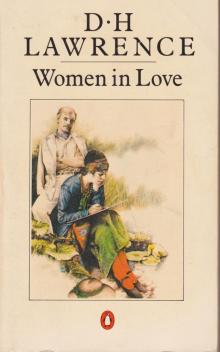 Women in Love
Women in Love The Ladybird
The Ladybird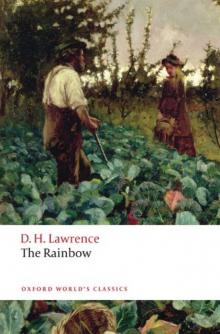 The Rainbow
The Rainbow The Captain's Dol
The Captain's Dol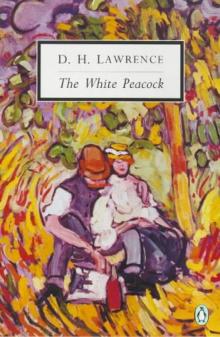 The White Peacock
The White Peacock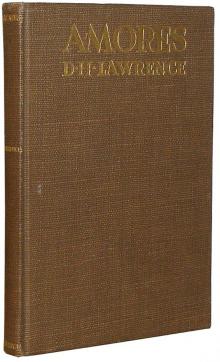 Amores
Amores Lady Chatterley's Lover
Lady Chatterley's Lover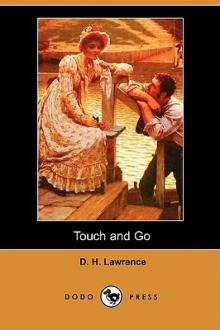 Touch and Go
Touch and Go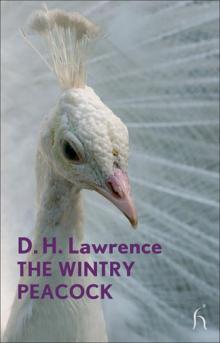 The Wintry Peacock
The Wintry Peacock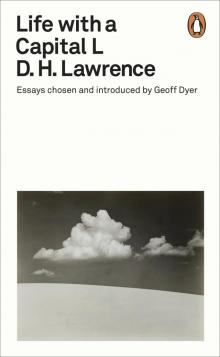 Life with a Capital L
Life with a Capital L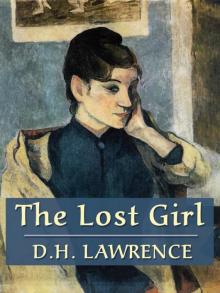 The Lost Girl
The Lost Girl Sons and Lovers
Sons and Lovers England, My England
England, My England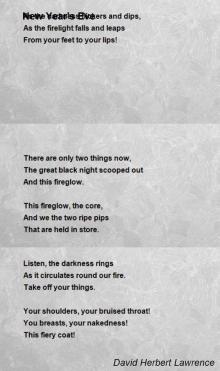 New Poems
New Poems Twilight in Italy
Twilight in Italy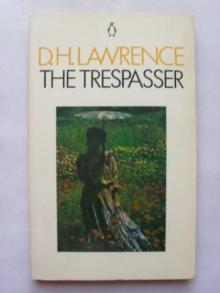 The Trespasser
The Trespasser The Collected Short Stories
The Collected Short Stories The First Lady Chatterley's Lover
The First Lady Chatterley's Lover Kangaroo
Kangaroo Bay
Bay Complete Works of D.H. Lawrence
Complete Works of D.H. Lawrence D H Lawrence- The Dover Reader
D H Lawrence- The Dover Reader The Rainbow (100th Anniversary ed.)
The Rainbow (100th Anniversary ed.)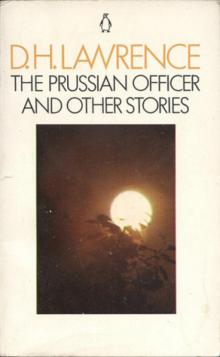 The Prussian Officer
The Prussian Officer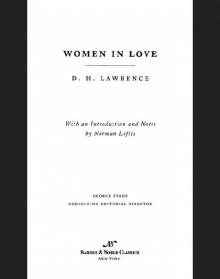 Women in Love (Barnes & Noble Classics Series)
Women in Love (Barnes & Noble Classics Series) John Thomas and Lady Jane
John Thomas and Lady Jane The Bad Side of Books
The Bad Side of Books Sons and Lovers (Barnes & Noble Classics Series)
Sons and Lovers (Barnes & Noble Classics Series) Selected Stories
Selected Stories Collected Short Stories
Collected Short Stories Complete Works of D.H. Lawrence (Illustrated)
Complete Works of D.H. Lawrence (Illustrated)